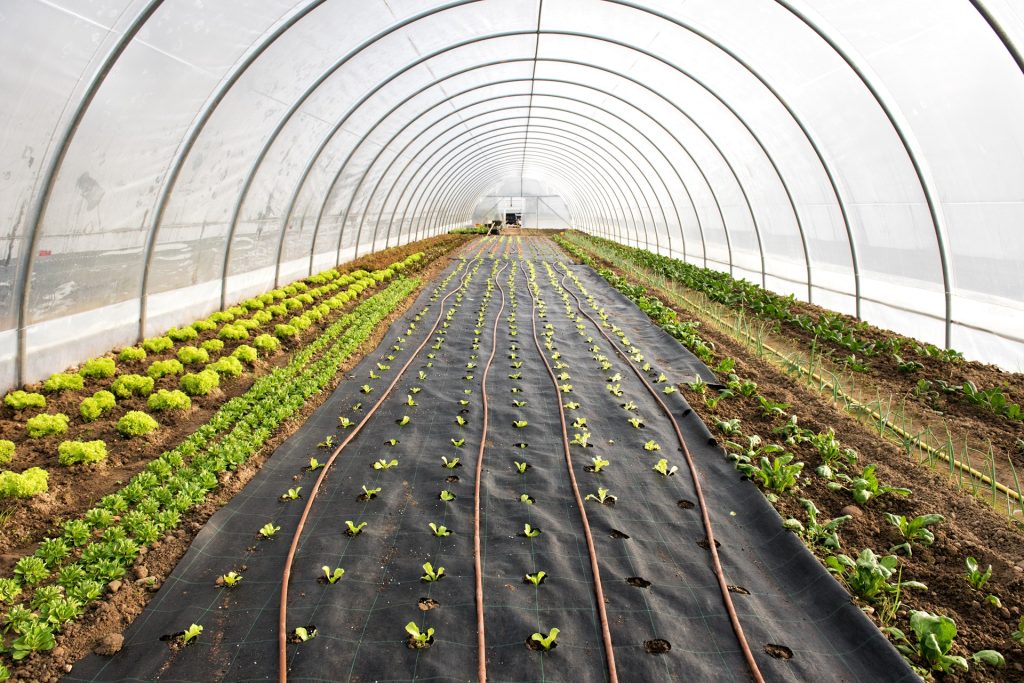In modern agriculture, efficiency and sustainability are no longer optional—they are necessary. One product that has transformed farming practices across the United States, especially in California, is hoop house tunnel plastic. This specialized plastic covering plays a crucial role in protecting crops, extending growing seasons, and ensuring higher yields. Farmers are constantly challenged by weather changes, pests, and rising production costs. Therefore, investing in protective structures like hoop houses has become an effective solution.
This article explains the essential benefits of hoop house tunnel plastic, with a special focus on sun protection for plants, durability, and practical applications. Readers will gain an understanding of why this agricultural tool is trusted by farmers, how it works in different conditions, and the long-term value it provides.
Enhanced Sun Protection for Plants
One of the most significant benefits of hoop house tunnel plastic is the superior sun protection for plants it provides. California farmers face intense sunlight, which can sometimes damage delicate crops. Excessive heat and ultraviolet rays reduce plant health, causing leaf burns, lower yields, and even stunted growth. By installing high-quality tunnel plastic, growers can manage sunlight exposure effectively.
Regulating Light for Healthier Growth
Tunnel plastic is designed to filter harsh UV rays while still allowing sufficient light penetration. This creates a balanced environment where plants receive the energy needed for photosynthesis without suffering from scorching. Moreover, some advanced plastics are treated with additives that diffuse light, spreading it evenly across the plants. This eliminates “hot spots” and ensures every part of the crop grows uniformly.
Protecting Sensitive Crops in Harsh Conditions
Certain crops, such as lettuce, herbs, strawberries, and flowers, are highly sensitive to excessive sunlight. For farmers in California’s Central Valley or coastal regions, hoop house tunnel plastic ensures these delicate crops thrive under controlled conditions. For example, strawberry growers use tunnel coverings to reduce fruit cracking and sunburn, which directly improves quality and market value.
Extended Growing Seasons
Another key advantage of hoop house tunnel plastic is its ability to extend the growing season. In regions where climate patterns shift quickly, protecting crops from cold nights or early frosts is essential. California farmers often deal with fluctuating temperatures between coastal coolness and inland heat.
Protecting Crops Against Early Frost
Even in a state known for its warm climate, frost can be damaging in certain agricultural zones. Hoop house tunnel plastic creates a microclimate that traps warmth and shields crops from sudden temperature drops. This protection allows farmers to plant earlier in the spring and continue harvesting well into the fall.
Consistent Yields Year-Round
By extending the growing season, farmers enjoy more predictable harvest cycles. For instance, vegetable growers using tunnel plastic can deliver fresh produce to markets consistently, even during off-season months. This advantage increases profitability, ensures local food availability, and reduces reliance on imported crops.
Better Moisture Retention and Water Efficiency
California’s ongoing struggle with drought makes water conservation a top priority. Hoop house tunnel plastic helps farmers manage this challenge effectively.
Reducing Evaporation Losses
When crops are covered, less water evaporates from the soil surface. This means irrigation systems work more efficiently, and plants receive consistent moisture without wasting resources. This benefit is particularly vital in areas where water restrictions impact daily farming operations.
Preventing Soil Erosion and Water Runoff
Rainwater or irrigation, when unprotected, can cause soil erosion. Tunnel plastic shields soil surfaces from heavy rainfall, reducing erosion risks and maintaining soil quality. Healthy soil ensures stronger plant roots and better nutrient absorption.
Protection Against Wind and Pests
Weather extremes often challenge farmers in California. Strong winds, dust storms, and pests can damage entire harvests. Hoop house tunnel plastic provides a reliable defense system.
Reducing Wind Stress on Plants
Wind stress weakens plants, breaks stems, and hinders proper pollination. By using hoop houses, farmers create a controlled environment where plants remain stable and healthy. This protection ensures crops like tomatoes or cucumbers grow tall and strong without structural damage.
Keeping Pests and Diseases at Bay
Tunnel plastics act as a physical barrier against insects and disease-carrying pests. Farmers who rely on organic methods find this especially helpful, as it reduces the need for chemical pesticides. With fewer pests, crops remain healthier, and farmers can market their produce as safer and more sustainable.
Cost-Effective Farming Solution
While installing hoop house tunnel plastic requires initial investment, it quickly pays for itself through long-term benefits.
Higher Returns on Investment
By protecting crops, increasing yields, and reducing losses, hoop houses help farmers secure a better return. For small-scale growers, this means stable income, while for large-scale operations, it translates into competitive market advantages.
Lower Maintenance Compared to Permanent Structures
Compared to permanent greenhouses, hoop houses are more affordable to build and maintain. The plastic covering can be replaced periodically without large financial strain, making it a cost-effective choice for farmers managing tight budgets.
Versatility Across Different Crops
Another reason hoop house tunnel plastic is widely used is its adaptability across multiple crop types.
Supporting Diverse Agricultural Needs
From leafy greens to fruiting vegetables and flowers, hoop houses can be adjusted to meet crop-specific requirements. Farmers can install customized coverings that balance light diffusion, ventilation, and humidity for optimal growth.
Meeting Local and Commercial Market Demands
California serves as a major supplier of fresh produce to the entire United States. Using hoop house tunnel plastic allows growers to meet market demand for crops like lettuce, berries, and peppers year-round. The versatility of this system strengthens California’s agricultural leadership.
Promoting Sustainable Farming Practices
Finally, hoop house tunnel plastic supports sustainability—a priority for California growers and global agriculture alike.
Reducing Reliance on Chemicals
Since tunnel coverings shield plants from pests and sun damage, farmers use fewer chemical sprays. This leads to healthier crops, safer food, and reduced environmental pollution.
Supporting Eco-Friendly Water and Energy Use
Hoop houses reduce water waste and limit energy consumption compared to high-tech climate-controlled greenhouses. This balance makes them a practical solution for eco-conscious farmers striving to reduce their carbon footprint.
FAQs
Q: How does hoop house tunnel plastic provide sun protection for plants?
A: It filters harmful UV rays, spreads light evenly, and prevents leaf burns, helping plants grow healthier in strong sunlight.
Q: Can hoop house tunnel plastic help during California’s drought conditions?
A: Yes, it reduces water evaporation, improves moisture retention, and ensures efficient use of irrigation systems.
Q: What crops benefit most from hoop house tunnel plastic?
A: Delicate crops such as lettuce, strawberries, herbs, and tomatoes thrive under tunnel protection due to controlled light and temperature.
Q: Is hoop house tunnel plastic cost-effective for small farmers?
A: Absolutely. It requires a modest investment compared to permanent structures and quickly pays off by reducing crop losses and improving yields.
Conclusion
Hoop house tunnel plastic is more than just a covering—it is an essential agricultural tool that supports crop health, water conservation, and long-term sustainability. In California, where farmers face intense sunlight, unpredictable weather, and water scarcity, this solution proves invaluable. By offering sun protection for plants, extending growing seasons, and ensuring consistent yields, hoop house tunnel plastic strengthens farming operations both large and small.
For growers aiming to balance productivity with sustainability, adopting hoop houses is a smart and forward-thinking investment. The future of farming depends on practical solutions, and tunnel plastic stands out as one of the most effective options available today.







